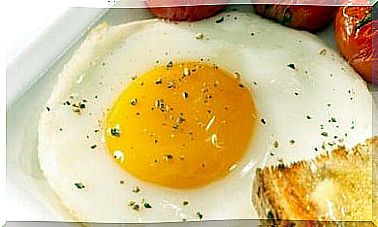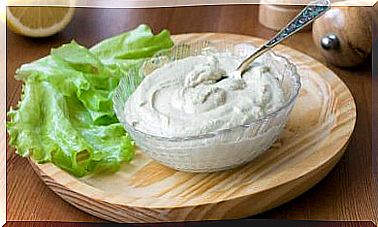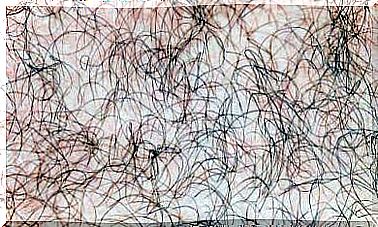Does Eating Bread Make You Fat?
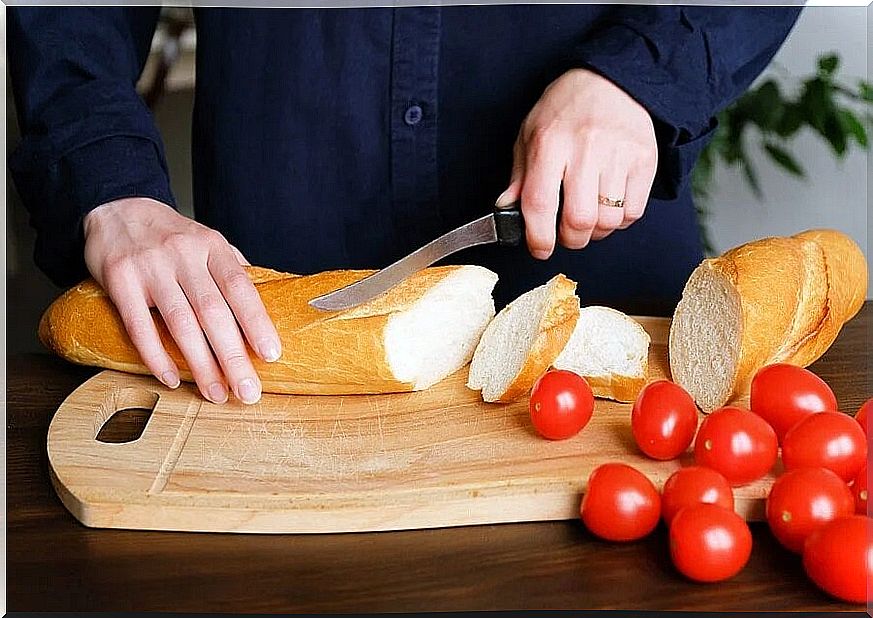
A very recurrent question is whether bread is a fattening food . It is noteworthy that there are no foods that alone make you fat or make you lose weight, as this fact is the result of a caloric balance.
Despite this, the influence of each food on insulin secretion and satiety can actually lead to more compulsive eating and weight gain.
bread is not fattening

Bread is a food made up mainly of carbohydrates. Its caloric contribution is approximately 300-400 kcal for every 100g of product. It can be included in a balanced eating plan and, by itself, does not produce weight gain.
However, it tends to have a high glycemic index, especially in its refined wheat varieties. This generates an insulin spike with subsequent reactive hypoglycaemia.
The consequence of consuming bread without other accompaniments is a momentary satiety with an increase in appetite that follows. Therefore, we are talking about a food that by itself does not generate satiety, and that can incite an excessive caloric intake right away.
Not to be used as an accompaniment
Bread is a food that is often used in the wrong way. The idea of accompanying meals with bread translates into an uncontrolled increase in energy intake, which is not always taken into account.
Bread can be consumed in moderation, but always as the main element of the meal. In this way, a meal can consist of a sandwich as the main course, including empanada or pizza. But it’s always a bad idea to add it as a follow-up.
On the other hand, on many occasions it is used to dip in sauce. This significantly increases the caloric value of the meal. Furthermore, its palatability can lead to the consumption of more food than necessary, overcoming the appetite barrier.
Likewise, it is a product that is generally not considered when setting up a diet. In other words, many people consume “just a bun” in their main meals, but they do not know that it is a caloric element and use it in an almost cultural way.
Not all breads are created equal
There are different types of bread, depending on the ingredients and the manufacturing process. In this way, a wheat bread is not the same thing as a rye bread, nor a loaf bread is the same as an artisan bread.
When choosing which bread to eat, it is always interesting to choose varieties made with whole grains, as little refined as possible. In addition, handcrafted options that include various types of cereals or grains in their recipe have a much higher nutritional quality.
The satiety power of food
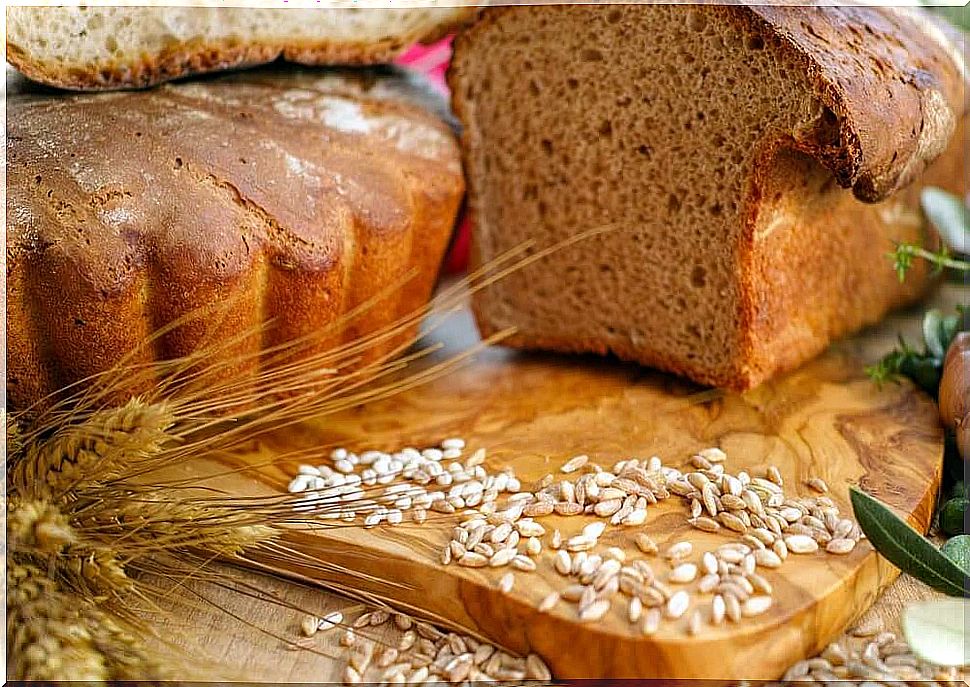
When planning a diet, in addition to taking into account the nutritional value of food, it is interesting to assess its satiety power. Thus, it is preferable to avoid processed foods or foods high in sugar.
Proteins and fats have a greater capacity to promote satiety, stimulating leptin and neuropeptide. In this way, we avoid reactive hypoglycemia after ingesting simple sugar – which leads to an increase in appetite.
Fiber-rich foods produce stomach and intestinal bloating, stimulating the receptors in charge of transmitting the feeling of satiety. This is one of the reasons why consumption of unprocessed foods should be prioritized.
Thus, in addition to offering advantages with regard to macro and micronutrients, foods with fiber allow an efficient control of the glucose curve and the appetite mechanism.
In the case of choosing foods rich in carbohydrates, whole grains or whole grains should be prioritized. These have a high amount of fiber and a low glycemic index, which stimulates insulin production much less than refined sugar.
Does bread make you fat? Let’s go to the conclusion
There is no fattening food on its own, and bread is no exception. However, the consumption of bread is usually done incorrectly, as it is often used as an accompaniment during meals.
If introduced into the diet, it should be the main element of the dish and its consumption should be avoided between meals to avoid a subsequent increase in appetite.
As a general guideline, it’s a good idea to avoid high-glycemic carbohydrate foods and processed foods. Fiber consumption becomes essential to guarantee satiety mechanisms and to prevent the development of complex diseases.




